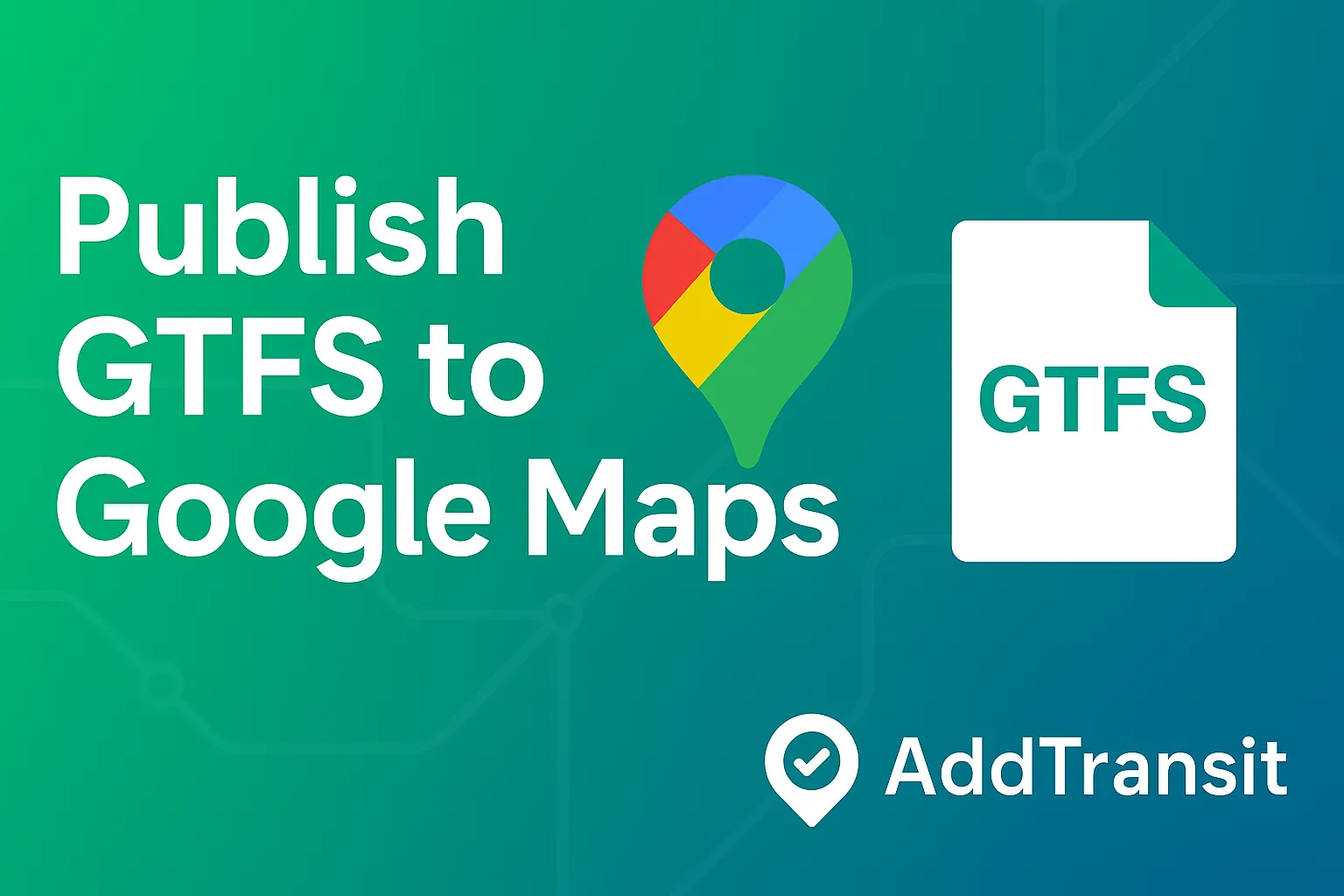How to Publish Your GTFS Feed to Google Maps
Why Publish to Google Maps?
Publishing your GTFS feed to Google Maps ensures that riders can easily find your transit services when planning trips. It increases visibility, improves passenger convenience, and builds trust in your brand by integrating directly with one of the world's most widely used mapping platforms.
Requirements Before You Start
- A valid GTFS feed containing stops, routes, trips, and schedules.
- Access to the Google Transit Partner Portal.
- A designated contact person in your agency for data updates and issues.

Step-by-Step Guide
Create your GTFS feed
Start by preparing a valid GTFS dataset. This file includes details of your stops, routes, schedules, and agency information. You can create GTFS manually, but most agencies use a tool such as AddTransit to simplify the process.
Validate & test
Before submitting, run your GTFS feed through a validator to catch common issues like missing stop times or incorrect shapes. Testing ensures riders will see accurate schedules in Google Maps.
Submit to Google Transit Partner Portal
Once your GTFS file is ready and validated, submit it via the Google Transit Partner Portal. Google will review, ingest, and publish your feed to Google Maps. The review process may take several days. After approval, your services appear in journey planning results worldwide.
Common Issues and Fixes
- Validation errors: Always run your feed through a validator before submission.
- Delays in processing: Be patient; Google's review process can take a few days.
- Ongoing maintenance: Keep your GTFS feed up to date as schedules change.
How AddTransit Can Help
AddTransit provides an easy-to-use online platform for creating, validating, and publishing GTFS feeds. Whether you operate a bus, ferry, or small transit agency, our tools save time and ensure compliance with Google's requirements. We can also help automate updates and support your long-term data management needs.